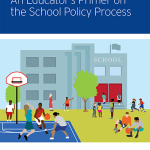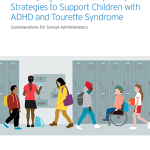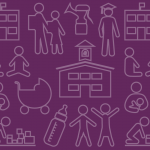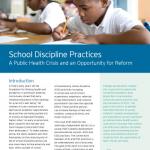School Discipline Policies to Support Children’s Mental Health & Well-Being
How are school discipline policies connected to children’s mental health? What evidence-based policy options can support kids in schools?
All children thrive in educational environments that value who they are and nurture their unique talents and perspectives. Parents, teachers, and schools often work diligently to ensure that schools are supportive for all students, including those with attention-deficit/hyperactivity disorder (ADHD) and Tourette syndrome. Disciplinary practices are one factor that can significantly influence a school's environment.
In developing positive disciplinary strategies, school administrators face the challenge of balancing the needs of all students in their care. Students, teachers, and administrators can all benefit from positive disciplinary strategies, many of which are linked to the following outcomes:
- Improved school performance
- More effective classroom management
- Safer and more positive school environments
- Greater physical, mental, social, and emotional health and well-being for students
Watch our webinar recording for a discussion that examines these questions:
- Why is it important to consider education policies — specifically, school discipline policies — as part of promoting children’s mental health in schools?
- How have school discipline policies affected some of the inequities we see today? How are children with disabilities and intersectional identities disproportionately affected?
- What are state and local school systems doing to support children’s mental health?
- What steps can practitioners take to support positive school discipline policies that improve educational opportunities for all children?
This is the final webinar in our series Meeting the Challenge: Evidence-Based Policies to Support Children’s Mental Health & Well-Being, which explores equitable policy options to promote children’s mental health.
Speakers
- Lara Robinson, behavioral scientist, Applied Research and Evaluation Team, Division of Human Development and Disability, Centers for Disease Control and Prevention (welcoming remarks)
- Jessica Breslin, senior attorney, ChangeLab Solutions
- Thalia González, professor of law; Harry & Lillian Hastings Research Chair; co-director, Center for Racial and Economic Justice, University of California Law, San Francisco
- Paige Joki, staff attorney, Education Law Center-PA
- Ben Cairns, vice president and campus dean, Colorado Mountain College Leadville & Salida
- Cesar De La Vega, senior policy analyst, ChangeLab Solutions (moderator)





